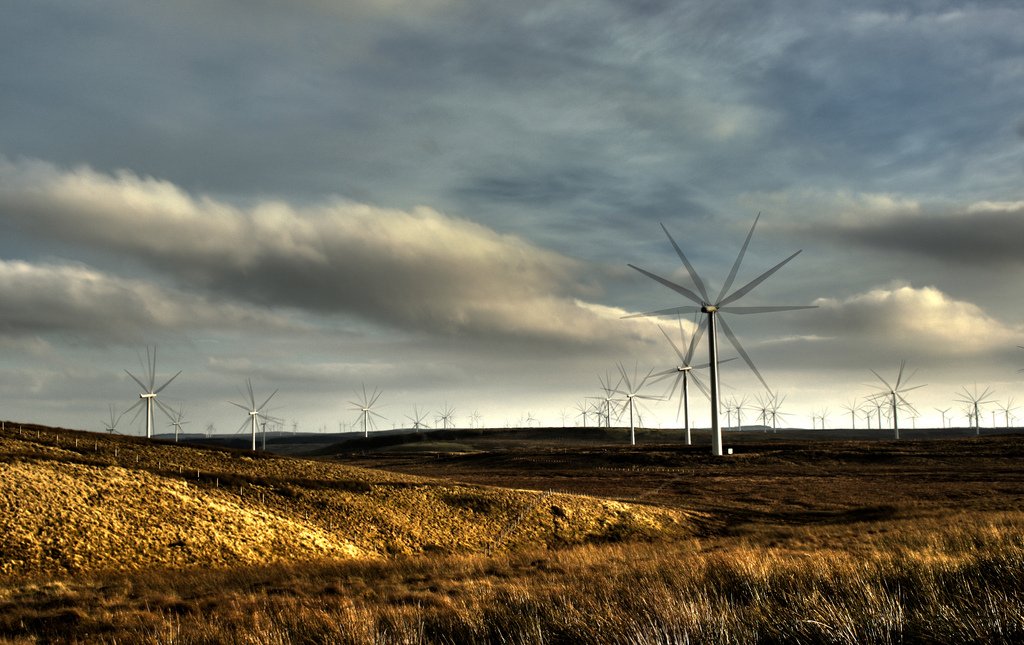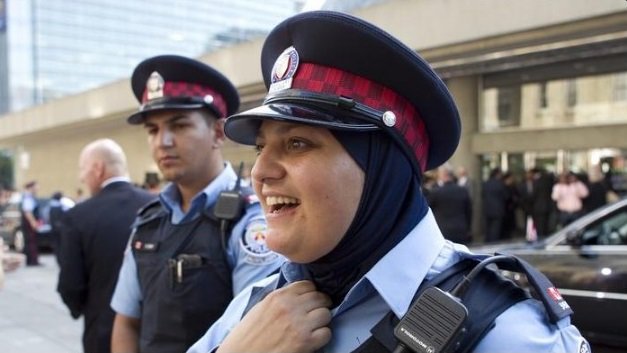Whether it’s tackling period poverty or fighting climate change, Scotland is leading the way in addressing some of the biggest issues that are facing the UK today.
Is there something in the water? Is it the fact it’s a nation run by women? Either way, there are a lot of great things happening north of the border.
Scotland’s government and people have shown that it’s possible to tackle discrimination and inequality. Now it’s time for the rest of the world to follow their example.
We’ve compiled a handy list of social issues that the Scots are busting, in case any world leaders out there are looking for some inspiration.
1. Ending Period Poverty
Period poverty is still a serious yet “silent” problem in the UK. Across the nation, girls are missing days of class every month because they can’t afford sanitary products. And in Scotland, one in five Scottish women have difficulty affording menstruation products, according to Quartz.
In July 2017, Scotland became the first country in the world to give out free sanitary products to low-income women for a six-month pilot scheme. The scheme proved so successful that it then was rolled out across the rest of the country — and Scottish Labour MSP Monica Lennon began her work to get all students across Scotland access to free period products.
Now, that bill has been passed, and in August 2018 Scotland became the world's first country (again) to offer free sanitary products for all students — in schools, colleges, and universities. The £5.2 million investment will supply the products to 395,000 students in a landmark policy change.
Read more: Scotland Is the First Country to Offer Free Sanitary Products to All Students
“This is another great step forward in the campaign against period poverty,” said Lennon. “Access to period products should be a right, regardless of your income, which is why I am moving ahead with plans for legislation to introduce a universal system of free access to period products for everyone in Scotland.”
Money spent on periods every year by women: £500.
— Global Citizen UK (@GlblCtznUK) June 29, 2018
Money @DaniRowley spent on periods just this week: £25.
Breaking down stigma in parliament: priceless 👏👏👏
Read more: https://t.co/DQnccFXQRLpic.twitter.com/8CPs3yg0kE
2. Renewable Energy
For the first six months of 2017, wind energy powered all of Scotland’s homes. That’s three million households.
“Scotland is continuing to break records on tackling climate change,” said Dr Sam Gardner, acting director of WWF Scotland.
Not only that, but Scotland’s last coal energy plant — Longannet Power Station — was shut down in March 2017. As the largest coal plant in Europe, Longannet was responsible for more than a fifth of Scotland’s carbon emissions.
Read more: Wind Energy Powered All of Scotland's Households for Six Months
The country is now coal-free, and making great strides towards forging a renewable and sustainable future for the UK — and in April 2018 it was revealed that two-thirds of all Scotland's energy came from renewables in 2017.
“These figures show Scotland as a renewable energy powerhouse,” said Claire Mack, CEO of Scottish Renewables. “Scotland has an enormous renewable energy resource: our winds, waves, tides, rainfall and even our longer daylight hours are tremendous assets to the country, and renewable energy enables us to use them to produce direct economic and environmental benefits.”
Oh, and the world’s first floating wind farm is being developed off its coast.

3. Baby Boxes
The baby box programme helps makes sure every newborn gets the best possible start in life. Every new mother is given a box of baby essentials, including books, clothes, and a thermometer. But the box can also be turned into a temporary crib, to cut down on cot death rates.
After being launched as a pilot programme in January 2017, it's now been rolled out to all new mothers across Scotland — providing equality and opportunity in Scotland from day one.
“Scotland’s baby box is a strong signal of our determination that every child, regardless of their circumstances, should get the best start in life,” said Scotland’s First Minister Nicola Sturgeon, in January last year.
And the rest of the UK is taking note — from September 2017 hospitals in Leeds, England, have been giving out free baby boxes too!
FM @NicolaSturgeon has delivered Scotland’s first Baby Boxes to new mums in Clackmannanshire. pic.twitter.com/FsYcvRL0nX
— First Minister (@ScotGovFM) January 1, 2017
4. Diversity in the Police Force
Muslim women who wear hijabs in Scotland can become police officers, without having to give up their headscarves.
Previously, wearing a headscarf was an option, but female officers had to request one and could be turned down. Now, it’s freely available as part of the uniform.
Read more: It's Time to Ditch 'Easy' Immigration Slogans, Scottish Tory Leader Tells PM May
It’s a policy that makes the Scottish police force more reflective of its people, and of the communities that it serves.
However Aleena Rafi, an unpaid special constable, was subject to racist online online abuse in May 2018 when it was revealed that she was the first policewoman to wear the specially-designed hijab in Scotland.
“So far I’ve really enjoyed myself and when I’ve been out, the public have been really welcoming,” Rafi said. “I have loved my time so far and hope to experience more new things with the police.”
“Wearing the hijab is, for me, a part of my life so when I was thinking of joining Police Scotland,” she added. “It did play an integral part in me deciding whether this is what I wanted to do.”

5. Protecting Animal Rights
Scotland became the first country in the UK to ban wild animals from circus acts, after the “Wild Animals in Travelling Circuses (Scotland) Bill” was passed in December 2017.
The bill banned non-domesticated animals from travelling, performing, or being put on display in static conditions.
First comes the leak, then comes the flood: it wasn't long until Wales followed suit in February 2018 — and then, a few weeks after, the UK government announced that a nationwide ban on all wild animals in circus acts will come into force before 2020.
Great news! The UK Government has committed to ban the use of wild animals in travelling circuses in England by January 2020. It follows a decade of promises, and more than 20 years of investigations and campaigning by ADI.
— ADI (@AnimalDefenders) February 27, 2018
Help secure the #UKcircusban: https://t.co/AMtNxFounypic.twitter.com/1iuAH6KqnL
6. Same-Sex Marriage
Scotland is home to the first Anglican Church to allow same-sex marriages, a huge step towards gay rights in Scotland and the UK.
St. Mary’s Cathedral in Glasgow became the first to conduct same-sex weddings, after the Scottish Episcopal Church voted to back the policy.
Then in September 2017, Alistair Dinnie and Peter Matthews made history as they wed in St John’s Church in Edinburgh — despite threats of punitive measures from the wider body of the Anglican Church.
“I have blessed marriages in other Anglican provinces and always had to stop short of the vows," said Rev Markus Dunzkofer, who oversaw the ceremony. "It felt like something was cut off, like something wasn’t right."
"Finally being able to do the whole thing felt like the fulfilment of where the spirit had been telling us to get to," he added. "It completely made sense, it all came together.”
The Church of Scotland voted to change its laws so that ministers can conduct same-sex marriages. pic.twitter.com/8FJulw5XZh
— AJ+ (@ajplus) May 28, 2018